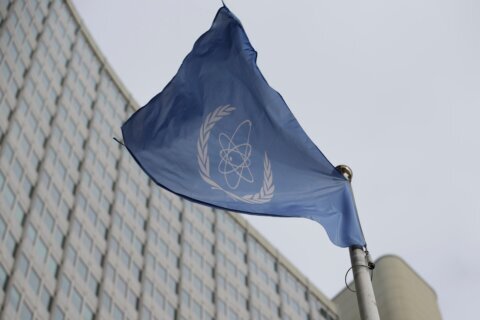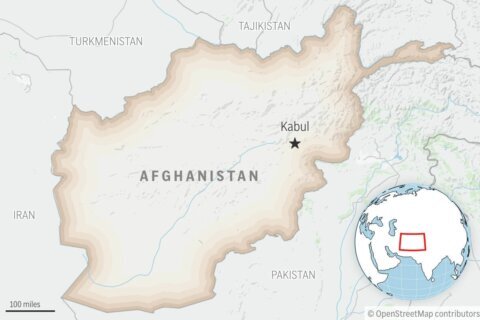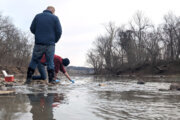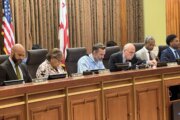The presumed death of Wal-Mart on New York Avenue NE is a grand opening for D.C. Councilman Vincent Orange’s big plans for the corridor.
Orange, D-At large, will introduce an emergency resolution next week calling on Mayor Vincent Gray to study the acquisition of an 11-acre parcel bounded by New York Avenue, Bladensburg Road and Montana Avenue. For what? An “entertainment-type center,” Orange told me Thursday.
“In this case, that’s a key piece of property at the gateway into the city,” said Orange, a candidate for D.C. mayor. “If we own that parcel then we can provide the vision and we can go out and select or put out a request for proposals and make sure we control the process.”
The high profile property, owned by the Schaeffer family, was slated as the home of one of six planned D.C. Wal-Mart stores. But the Schaeffer’s deal with developer Rick Walker fell apart last year, and the lot, located a few blocks from the Hecht Co. warehouse, is now back on the market.
As for Wal-Mart, Orange said, “I’m glad it did fall apart at that site.” And if someone else buys the Schaeffer property, he said, “The wrong thing could be placed there and it may not be in harmony with the plans for the District of Columbia.”
And those plans are?
Orange introduced a bill in November to require the construction of a film and television soundstage in the New York Avenue corridor (defined as New York Avenue between Fort Lincoln Drive and Florida Avenue), to provide tax incentives for new two and three star hotels and new retail in the corridor, and to require a streetcar line along Bladensburg Road from New York Avenue to H Street NE.
“It should be a show piece,” Orange said.
A feasibility study conducted for the D.C. Office of Motion Picture and Television Development, delivered in September 2013, suggested that a two-sound stage complex, one 15,000 square feet and the other 7,000 square feet, “can effectively serve as a driver of additional filming activity.” The study, performed by Santa Monica, Calif.-based Metropolitan Research & Economics, indicated that the recommended project would cost $9.1 million, with a significant taxpayer subsidy required.
Orange’s New York Avenue measure was separate from his all-encompassing (some would say, wacky) legislation regarding the RFK Stadium site, a bill that would require a feasibility study of a 100,000-seat domed stadium, an 18-hole championship golf course, a multimedia soundstage, a film and photography center, three hotels, a spa and fitness center, an indoor water park, a 24-hour diner, a movie theater, mixed-income housing and a beer garden, among other items.






